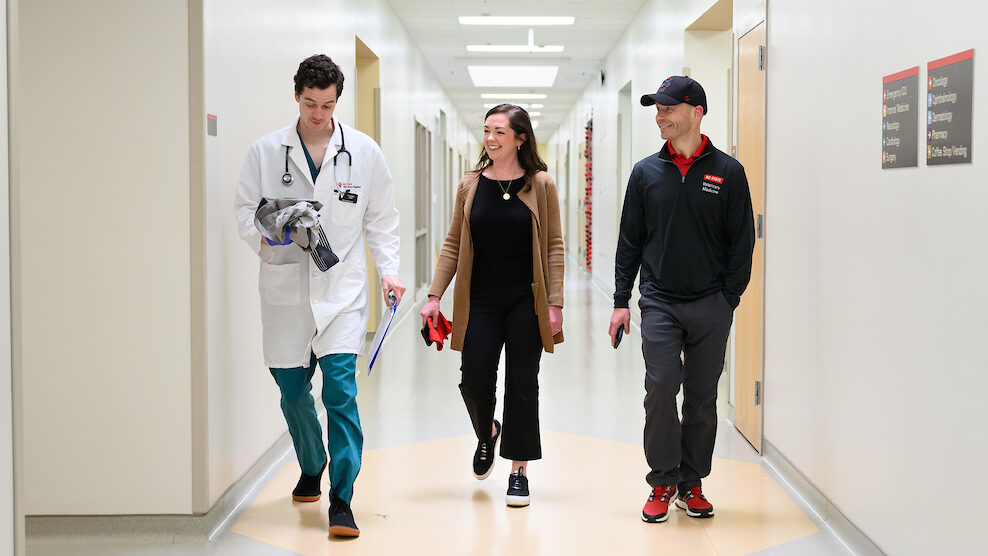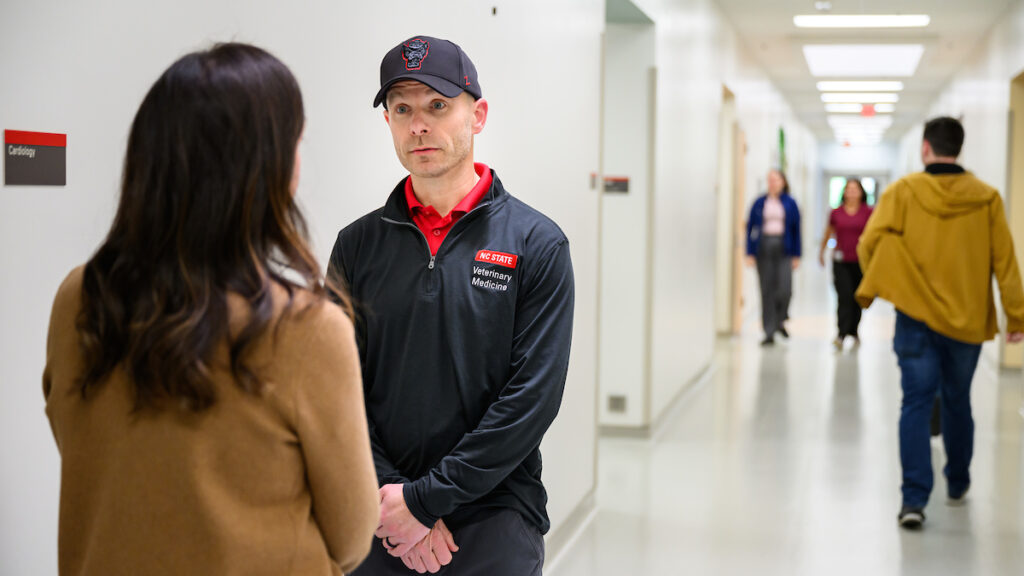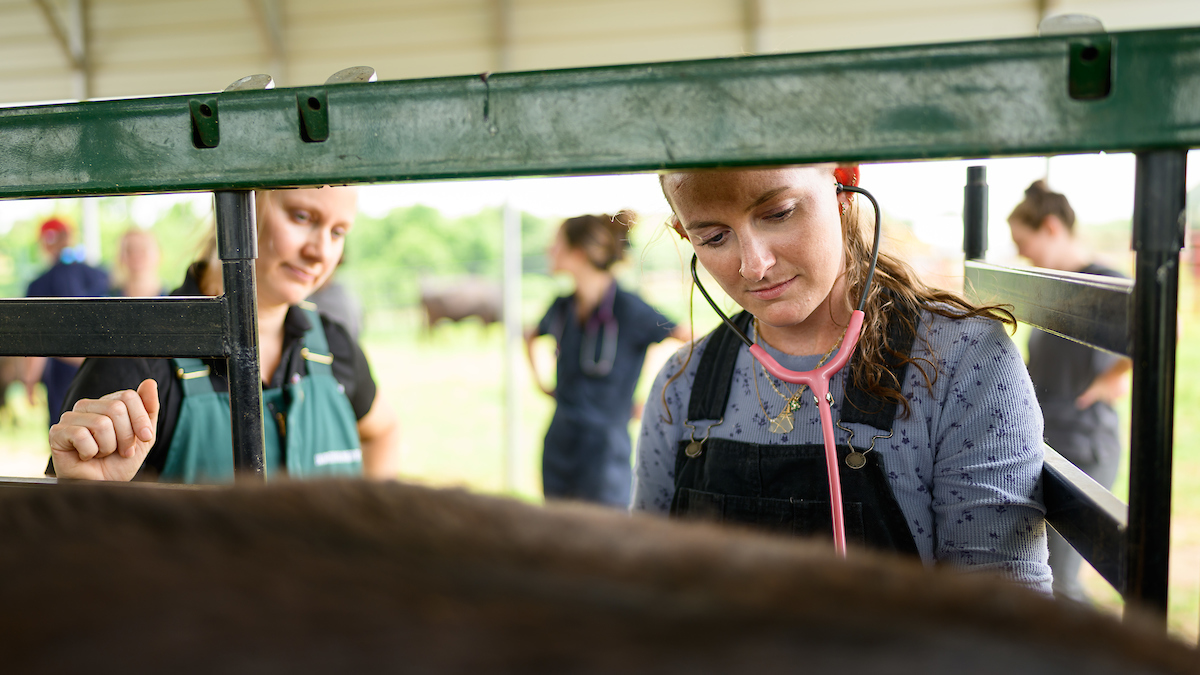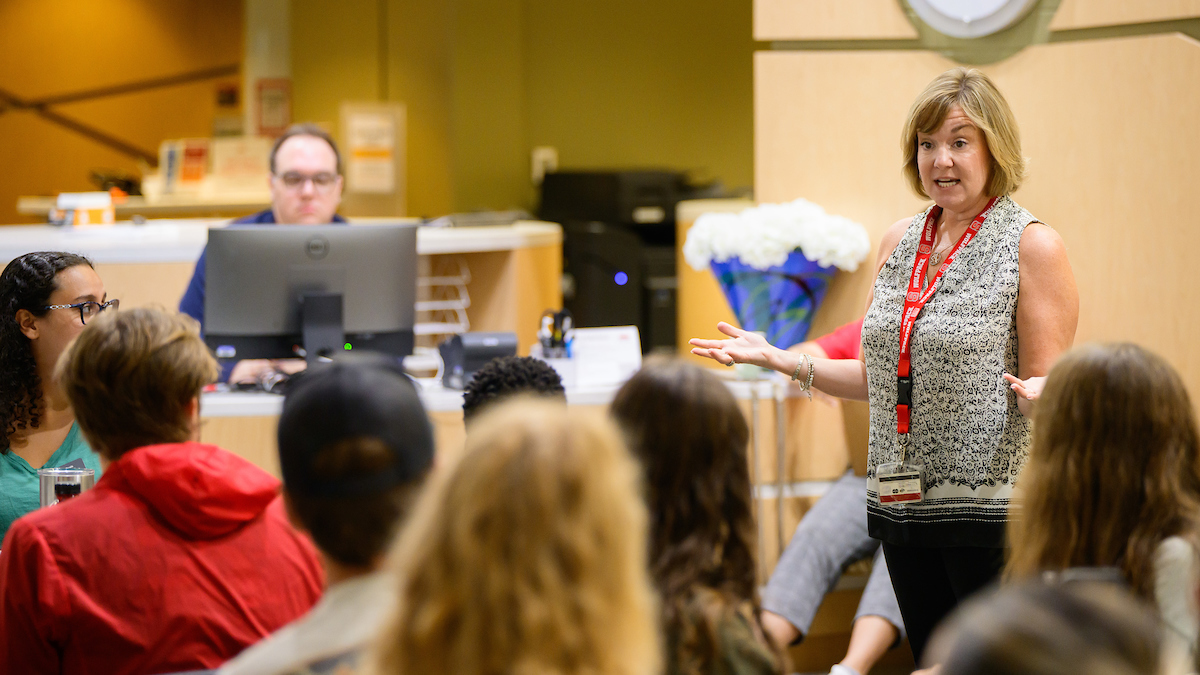New Veterinary Hospital Positions Aim to Enhance Patient, Clinician Experience
Dr. Timo Prange will focus on adding efficiencies to the NC State Veterinary Hospital that enhance the clinical experience for both patients and staff members.

The NC State College of Veterinary Medicine has named Dr. Timo Prange, a clinical associate professor of equine surgery, as its executive veterinary medical officer.
In the newly created position, Prange will focus on adding efficiencies to the NC State Veterinary Hospital that will allow the facility to increase its caseload and enhance the clinical experience for both patients and staff members.
“In this role, Dr. Prange will help with clinical service interactions and communications and will work closely with the house officer program focusing on mentoring and wellness,” says Dr. Kate Meurs, dean of the NC State College of Veterinary Medicine. “We’re taking steps to make interacting with our hospital a smoother experience so that we can increase the caseload.”
Dr. Shelly Vaden, a professor of internal medicine, has been named the new associate veterinary medical officer and will focus on staff wellness initiatives.
The college created the veterinary medical officer positions to make it easier for the hospital to continue its excellent patient care as caseloads increase in the face of a national shortage of veterinarian educators and veterinary technicians.
“We wanted to make a larger role to facilitate the interactions between faculty and staff in the hospital in the best way as we continue to grow, and that can only help us better serve clients as well,” says Dr. Anthony Blikslager, associate dean and director of veterinary medical services. “Dr. Prange will be using his exceptional interpersonal skills to help us maximize efficiencies. He will be the point of contact for all faculty who work in the hospital and for the hospital administration as well as house officers.”
The NC State Veterinary Hospital generally has more than 100 house officers – medical residents or interns – training with nearly 90 faculty clinicians year-round. An important part of Prange’s new role will be to identify ways to enhance the interactions between house officers and faculty mentors as the trainees fill the crucial role of healer in a bustling veterinary hospital.

“I love the opportunity that I’ve been given to help the entire hospital community grow together as a team and to really see our values played out in our everyday workplace culture,” says Prange, who also chaired the hospital’s board from 2021 to 2023. “This is going to be work, but it’s also going to be exciting. I really enjoy solving problems together with other people.”
More than 30,000 patients are seen each year at the NC State College of Veterinary Medicine, which offers services in more than 30 specialty areas. As the caseload grows, Prange will manage a delicate balancing act.
For example, Blikslager points to the many services such as neurology, surgery or radiology that offer procedures requiring animals to be anesthetized. Any increase in caseloads has a cascading effect on the anesthesia department.
“There’s not enough time or room or personnel to do everything everybody wants no matter where you are,” Blikslager says. “And that’s really where Dr. Prange comes in. He gravitates toward getting in the middle of sometimes challenging interpersonal communications between all levels, staff, house officers and faculty and trying to resolve it.”
Any metrics used to measure how the NC State Veterinary Hospital is doing will stem from how well the people working there are doing, Blikslager says. The creation of the executive veterinary medical officer position shows the college’s commitment to caring for its internal community, Blikslager says, and Prange is particularly well-suited to fill it.
“He is an extraordinarily genuine, direct, open, listening person,” says Blikslager, who as a professor of equine surgery has worked closely with Prange for years. “From what I’ve seen, the people he’s interacted with are exceptionally grateful for how he’s done that. It’s just a skill that doesn’t come along very often.”
Prange will continue to see equine surgery patients and conduct research into treating cancer and advancing equine health even while helping his colleagues excel.
“The CVM values are community, inclusivity, innovation and passion,” Prange says. “When you see them on a daily basis with the people that you work with, that is really awesome. If people feel like we have improved the situation by the efforts we’ve put in, that’s ultimately what it comes down to. We can make that happen.”
- Categories:


